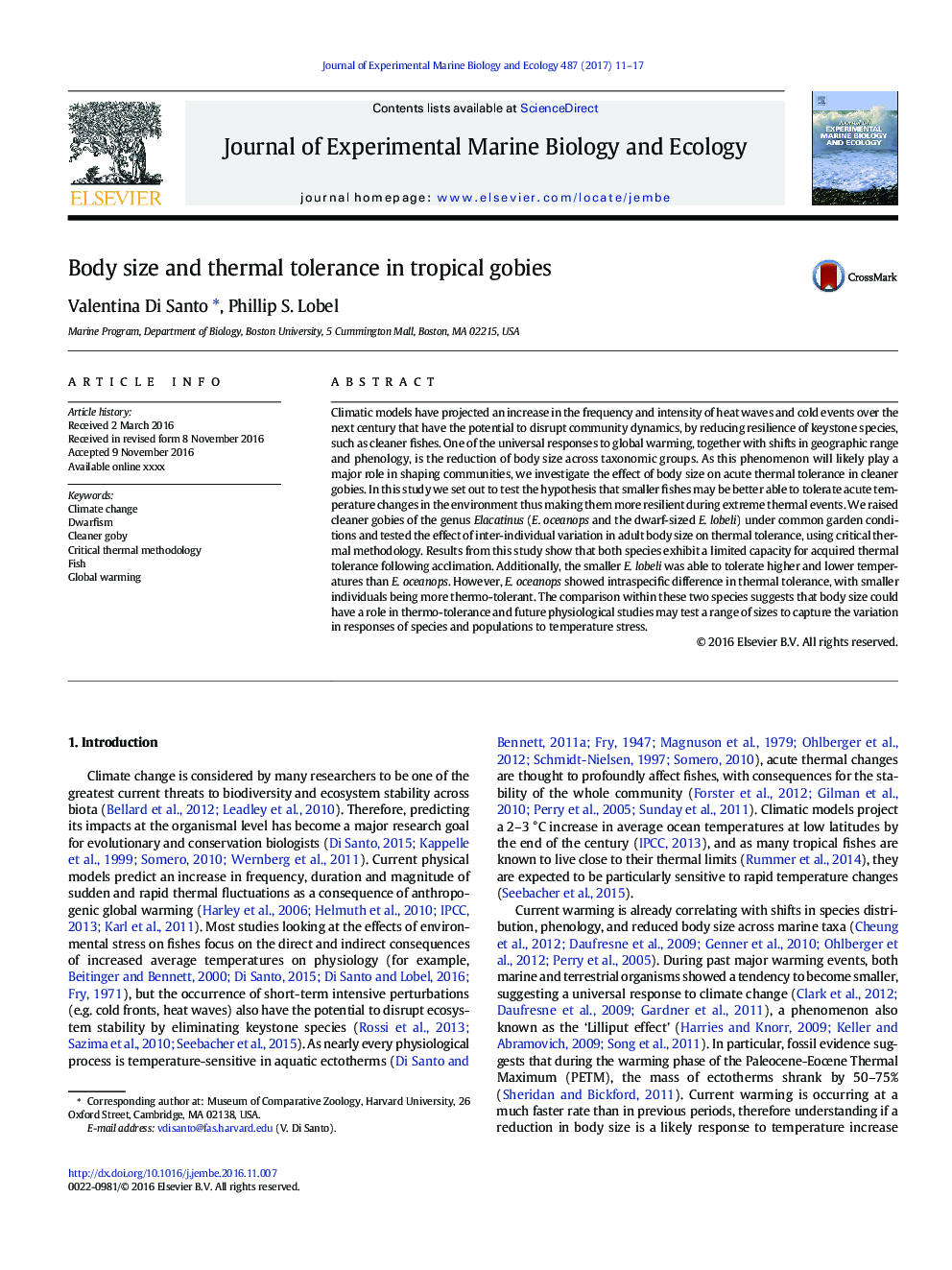| Article ID | Journal | Published Year | Pages | File Type |
|---|---|---|---|---|
| 5744575 | Journal of Experimental Marine Biology and Ecology | 2017 | 7 Pages |
Abstract
Climatic models have projected an increase in the frequency and intensity of heat waves and cold events over the next century that have the potential to disrupt community dynamics, by reducing resilience of keystone species, such as cleaner fishes. One of the universal responses to global warming, together with shifts in geographic range and phenology, is the reduction of body size across taxonomic groups. As this phenomenon will likely play a major role in shaping communities, we investigate the effect of body size on acute thermal tolerance in cleaner gobies. In this study we set out to test the hypothesis that smaller fishes may be better able to tolerate acute temperature changes in the environment thus making them more resilient during extreme thermal events. We raised cleaner gobies of the genus Elacatinus (E. oceanops and the dwarf-sized E. lobeli) under common garden conditions and tested the effect of inter-individual variation in adult body size on thermal tolerance, using critical thermal methodology. Results from this study show that both species exhibit a limited capacity for acquired thermal tolerance following acclimation. Additionally, the smaller E. lobeli was able to tolerate higher and lower temperatures than E. oceanops. However, E. oceanops showed intraspecific difference in thermal tolerance, with smaller individuals being more thermo-tolerant. The comparison within these two species suggests that body size could have a role in thermo-tolerance and future physiological studies may test a range of sizes to capture the variation in responses of species and populations to temperature stress.
Related Topics
Life Sciences
Agricultural and Biological Sciences
Aquatic Science
Authors
Valentina Di Santo, Phillip S. Lobel,
